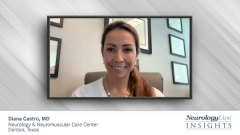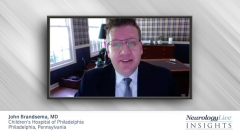
The Role of Dystrophin Restoration and Gene Therapy in Cardiac and Pulmonary Function
An expert discusses how genetic therapies like exon skipping and gene transfer aim to restore dystrophin function but face challenges in delivering complete protein restoration and achieving equivalent effectiveness across skeletal, cardiac, and pulmonary muscles.
Episodes in this series

Video content above is prompted by the following:
This segment delves into genetic therapies aimed at addressing the root cause of Duchenne muscular dystrophy (DMD)—the absence of functional dystrophin protein. Two primary approaches exist: exon skipping (RNA-based therapy that restores reading frame) and gene transfer (delivering micro-dystrophin via viral vectors). Both approaches face significant limitations, as exon skipping produces incomplete dystrophin missing both skipped and naturally deleted exons, while gene therapy cannot deliver full-length dystrophin due to size constraints.
The effectiveness of these therapies varies significantly based on the specific genetic mutation and which exons are affected. Critical exons involved in protein anchoring or protein complex interactions may have more severe functional impacts regardless of total exon number. Current gene therapy uses micro-dystrophin constructs containing only the most essential portions of the gene, which may not provide equivalent function to natural dystrophin across all body systems.
A major challenge is ensuring equivalent dystrophin restoration across different tissue types, particularly cardiac and pulmonary muscles, which are ultimately life-threatening when affected. Most clinical trials focus on young patients (aged 4-8 years) who lack significant cardiac or pulmonary disease, making it difficult to assess these therapies' impact on the most critical aspects of DMD progression. The segment emphasizes the need for longer-term follow-up studies and more sophisticated cardiac and pulmonary monitoring to understand true therapeutic efficacy beyond skeletal muscle improvements.
Newsletter
Keep your finger on the pulse of neurology—subscribe to NeurologyLive for expert interviews, new data, and breakthrough treatment updates.













